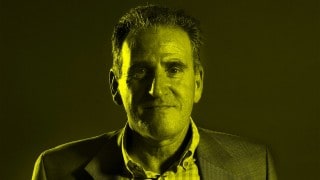The power gap in Europe is a certainty, the only remaining question is: when? As a forecast, the power gap in Switzerland will amount to 15-33% of anticipated consumption in 2030. But in Europe as a whole, the situation is much worse. The growing shortages in Europe in the transmission and production of electricity will amount to around 1800 TWh (Terawatt hours) by 2030, which is equal to ninety times the Swiss power gap (20 TWh). In a few years, France will require all its power generation capacity for its own needs, and what is more, none of the remaining Western European countries will be able to produce sufficient power to cover their own national needs. ...
Swiss experts expect first shortfalls in electric power supply to occur within the next five years. And the energy department in Bern is already busy working on a so-called cut-off plan. Electricity suppliers are already counting on periodic power cuts to entire towns and industrial zones within the next years. Today we cannot begin to imagine twelve hour power cuts in entire cities like Zurich or Frankfurt. What would the consequences be for electronic data, especially in the banking system? The economic fall-out could be catastrophic….
Russia can stop gas supply through pipelines at any moment. This would have an immediate effect: German manufacturing and parts of infrastructure like heating systems, trains and lights, would instantly break down. Imagine the consequences. The consequence on Russia of loosing the European market or the momentary income from gas exports would not be immediate and is not very likely. Because of the above, Western Europe would make all the concessions required in their appeasement politics towards Russia. I could imagine Russia pursuing several goals, for instance the retreat of NATO from the Baltic States, Poland, Hungary etc., not to speak of drastically rising gas and oil prices.
The Kyoto protocol as an instrument of self-deception: In the EU, operators of thermal power plants based on coal receive state subsidies by being given CO2 certificates, which are negotiable on the stock market. Coal plants would not be competitive without such subsidies. Biomass fuel leads to a shortage of foodstuffs and to the destruction of rain forests through the production of palm-oil used for power generation here in Europe. The export of energy intensive production processes in non-European countries, which does not reduce global CO2 emissions, but allows European politicians to show improvements on the CO2 front, while causing economic damage….
The question is therefore how quickly the power gap can be closed, taking into account the decision making process, planning and construction of power plants. In the short term, within the next five years, electricity can only be produced through new construction of gas power stations. Consequently it is understandable that the European utility industry is busy obtaining appropriate licenses. Unfortunately this short term solution increases our dependence on gas supplies and the emission of greenhouse gases. In comparison the construction of a nuclear power station, including licensing requirements, takes as a minimum 15 years, assuming that an existing technique is applied. Nuclear power stations of the 4th generation will only be developed in a 20-year time, and can therefore only be operative in 2050.
How Comes that We Find Ourselves in Such a Position? Emotions in internal politics: These are based on non-information, disinformation and fear. Those fears are willingly raised by two groups with their own agendas: politicians and political parties, willing to be elected, and NGOs such as Greenpeace. Stirring fear is a powerful instrument—comparable to envy—to acquire public support (votes) or to raise funds. Fears regarding nuclear energy and greenhouse gases are successfully stoked. Both anxieties contradict each other and have fatal consequences on our European energy policies, bringing serious planning to a standstill. Salvation is then sought after in methods of generating energy which exclude both nuclear and fossil fuels. Emotions dangerously frustrate rational decisions and lead to a gigantic misallocation of funds and efforts.
—Dr.-Ing. Hildegard von Liechtenstein, Thomas More Institute, May 2007
http://www.institut-thomas-more.org/pdf/136_fr_WP-ITM10Eng.pdf









